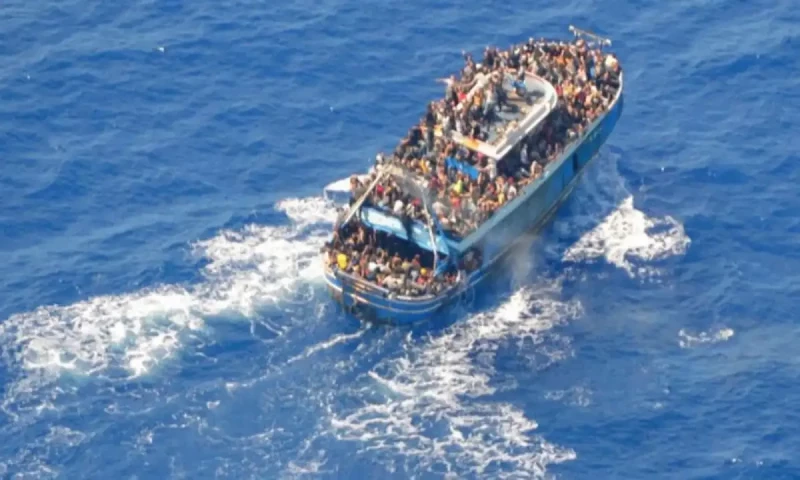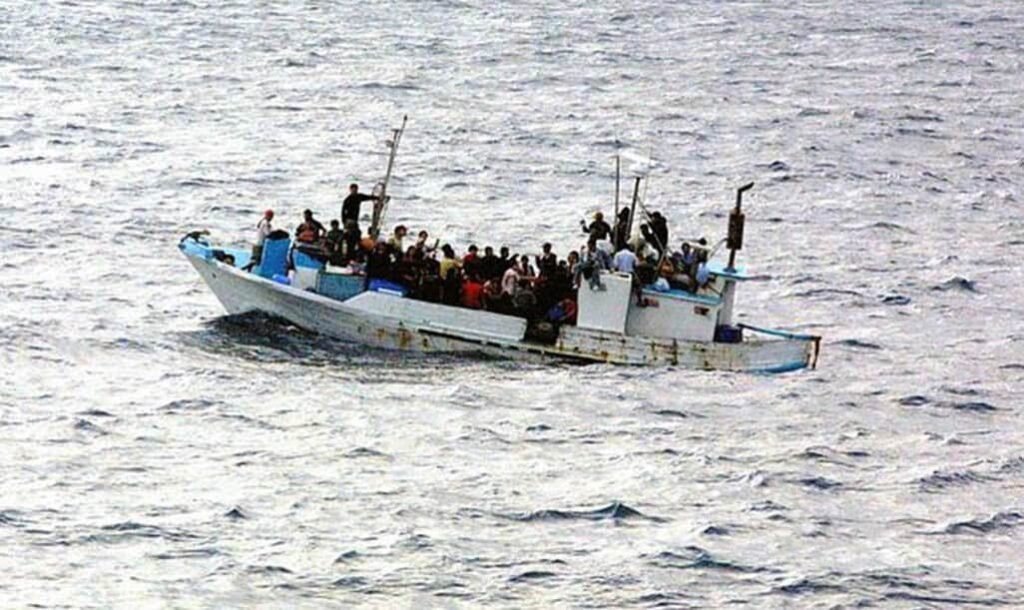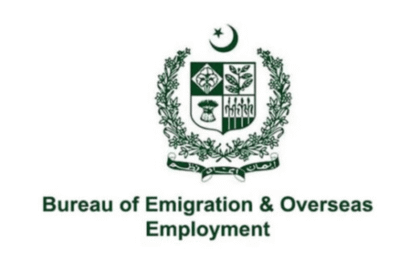By Naimat Ullah
Another tragedy has struck, claiming the lives of over fifty individuals as yet another boat capsized in the treacherous waters of the Mediterranean. This time, the victims were among the many migrants attempting to reach Spain illegally from Morocco. The ill-fated vessel, which had set sail from Mauritania on January 2, 2024, was carrying 86 migrants, including 66 Pakistanis. While 36 individuals were rescued, a devastating 50 lost their lives in this latest disaster. This incident is just one in a long line of heartbreaking events fueled by the thriving human smuggling trade, which continues to wreak havoc on the lives of vulnerable individuals seeking a better future.
According to reports, the boat was in a dire condition even before the tragedy occurred. Passengers had been suffering from severe cold and illness due to a lack of provisions, and many were physically weakened. Shockingly, the human smugglers, who had been extorting additional money from the passengers, reportedly threw ill individuals overboard and even resorted to violence, killing several in the process. Some of the survivors spoke of the harrowing experience, describing the smugglers as ruthless and inhumane. The ship had been stranded in the open sea for eight days, and during this time, the migrants were subjected to not only physical abuse but also exploitation by the smugglers.

This tragic event is not an isolated one. The phenomenon of human smuggling has been a longstanding issue, with countless lives lost each year in pursuit of a better life. Despite repeated attempts by governments to combat this heinous trade, the problem persists on a massive scale, and incidents like this are becoming all too common. In fact, the number of deaths in human smuggling-related incidents has skyrocketed in recent years. In 2024 alone, more than 10,000 people, including over 3,600 Pakistanis, perished while attempting to reach Spain, a significant increase compared to 2023.
Human trafficking networks are deeply entrenched in various countries, including Pakistan, where the demand for migration remains high. In June 2023, a similar boat tragedy claimed the lives of more than 700 people, including 360 Pakistanis. In December 2024, another disaster saw the deaths of nearly 40 Pakistanis, and in early January 2025, several more Pakistani lives were lost. Each time, the stories of the survivors paint a grim picture of desperation, exploitation, and death.
Despite these recurring tragedies, there has been little change in the migration patterns. Migrants, especially young Pakistanis, continue to risk their lives in search of better opportunities abroad, often opting for dangerous and illegal routes. The situation is further compounded by the lack of employment opportunities in Pakistan, which pushes many individuals to make this life-threatening decision. Human trafficking rings prey on these vulnerabilities, charging exorbitant sums for passage to Europe, knowing full well that many will not survive the perilous journey.

The government’s response to these incidents has been swift but largely ineffective. While there are frequent announcements of tough penalties for those involved in human trafficking, the implementation of these measures remains inadequate. The latest tragedy, along with the growing number of deaths, raises serious questions about the ability of authorities to curb this deadly business. Despite efforts such as the 210 million Euro aid announced by Spain in February 2024 to combat human trafficking in Mauritania, the problem persists. In fact, the number of deaths linked to human smuggling increased by 58% in 2024 compared to 2023.
In Pakistan, the root causes of this problem are multifaceted. The country’s political instability, economic struggles, and lack of viable employment opportunities have left many citizens feeling disillusioned and desperate for a better life elsewhere. The stark reality is that, despite being a country with immense potential, Pakistan has failed to provide its citizens with sufficient opportunities to thrive within its borders. For many, the allure of a better life abroad, even through perilous means, outweighs the risks.
What is perhaps more concerning is the failure of Pakistan’s political leadership to address these issues comprehensively. Politicians continue to engage in bitter political rivalries, focusing on personal agendas rather than the welfare of the people. The current political climate is characterized by infighting between parties such as the Pakistan Peoples Party (PPP) and Pakistan Tehreek-e-Insaf (PTI), with little attention being paid to the pressing needs of the nation’s youth. As the political elite squabble over power, the common citizen is left to suffer the consequences, including the loss of life in tragic migration attempts.
The broader socio-economic challenges facing Pakistan are evident in the rising number of people seeking to leave the country in search of better prospects. According to reports, more than 700,000 Pakistanis left for overseas employment in 2024, a 15% decline compared to the previous year. While this may seem like a reduction, the numbers are still staggering, highlighting the ongoing issue of brain drain, where the country loses its skilled workforce to foreign lands. This outflow of talent is not only detrimental to the economy but also hinders national development.
The rise in migration is also indicative of the deep-rooted issues within Pakistan’s labor market. Despite the efforts of overseas Pakistanis to support their families back home through remittances, the country’s economy continues to struggle. These remittances play a vital role in the country’s economic recovery, but they are not a long-term solution to the problems of unemployment and poverty. Many of the migrants who go abroad also contribute to the transfer of skills, technology, and investment, which can help Pakistan’s development. However, the outflow of people also represents a loss of human capital, particularly in fields like healthcare, education, and technology.

Pakistan’s political and economic instability is not just an internal issue; it is also a key driver of illegal migration. If the government fails to address the root causes of migration, such as unemployment, inflation, and political corruption, the cycle of human trafficking and migrant deaths will only continue. The lack of concrete measures to improve the job market, combat corruption, and provide social safety nets for the most vulnerable citizens exacerbates the situation.
In conclusion, the recent boat tragedy is a stark reminder of the dire need for comprehensive reform in Pakistan’s labor market, immigration policies, and efforts to combat human trafficking. While the government continues to make empty promises and engage in political posturing, the people continue to suffer. Until meaningful change is implemented—one that addresses the socio-economic challenges facing the nation—such tragedies will continue to unfold. The time for action is long overdue, and the stakes are nothing short of the future of Pakistan’s youth.







